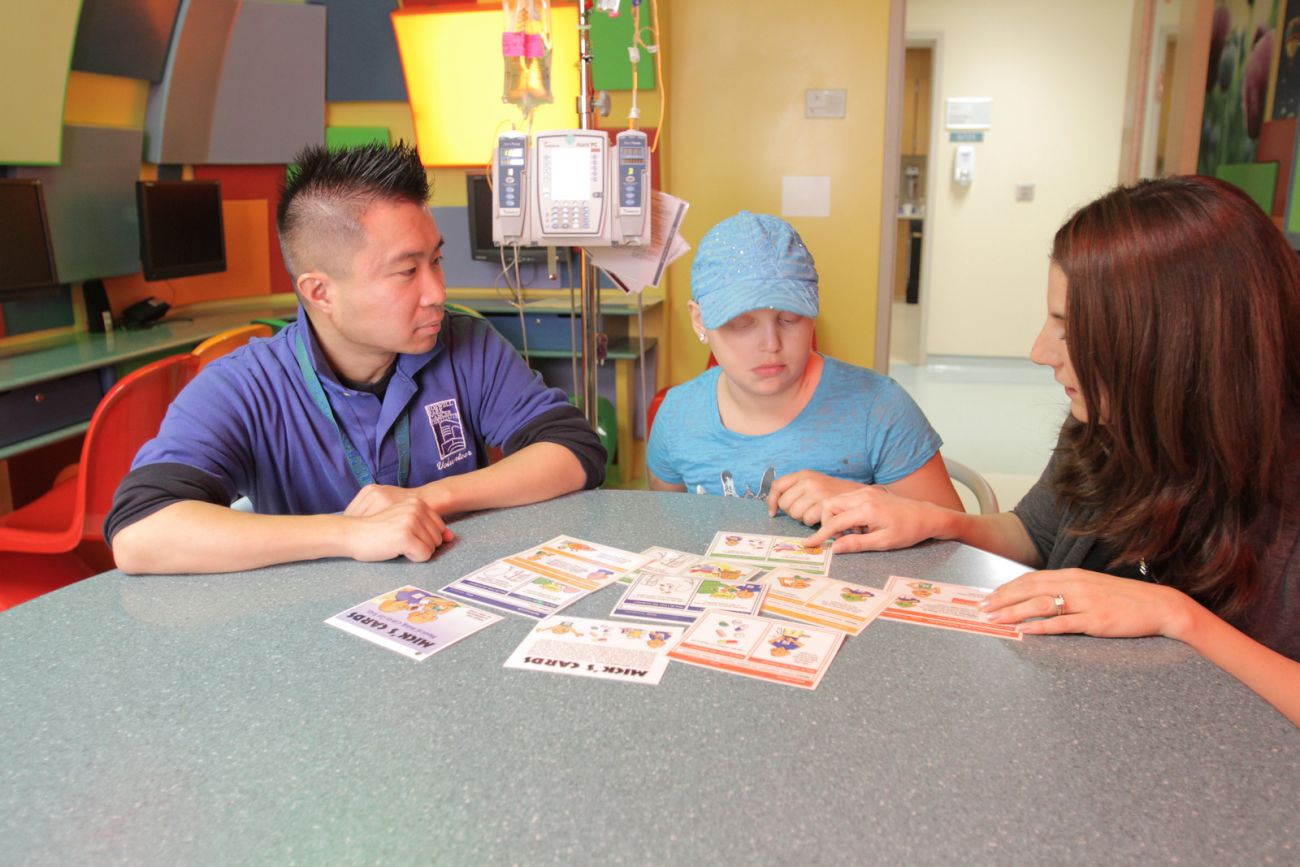Children with brain tumors or with acute lymphoblastic leukemia (ALL) are most likely to have late effects in the brain, but any child treated for cancer is at a higher risk for learning disabilities, memory loss and social distress.
Normal brain cells grow quickly in the first few years of life, making them very sensitive to surgery, radiation, and chemotherapy. Some therapies associated with cognitive delays include:
- Intrathecal chemotherapy — a procedure in which drugs are injected into the fluid space between the tissues covering the brain and spinal cord — such as Methotrexate, Cytarabine, Cisplatin or Carboplatin
- Radiation involving the brain, ears & eyes
- Brain surgery
Academic and social problems could appear immediately, but others may not surface for several years.
How to Prepare
Even if your child doesn’t develop any learning problems after treatment, it’s important to prepare and start communication early.
After your child is diagnosed and long before any plans are made for them to return to school, talk with your child’s teachers and school counselor about the cancer. You might need to write a letter to the principal about your child’s diagnosis, treatment plan and potential learning problems. The school needs to know the type of cancer, the projected timeline for treatment, and how long you expect your child to be out of school. Ask your cancer team to help you write a letter explaining any expected changes in your child’s routine so you can develop an Individual Educational Plan (IEP) or a 504 plan.
What is an IEP or 504 Plan?
An IEP or a 504 Plan is a plan developed by both parents and teachers to meet the individual needs of a student. If your child meets all of the legal requirements to qualify as a special education student, the plan is called an IEP; if not, it’s called a 504 Plan.
The plan describes your child’s learning problem and sets specific goals for education. It includes referrals to other services if needed, such as occupational therapy or speech therapy, and provides for regular evaluation of the plan. The IEP or 504 Plan can be changed at any time to address any cognitive changes caused by the cancer and/or its treatment.
Warning Signs
Most children adjust well to school after cancer treatment. However, cancer and its treatments can cause emotional and cognitive changes, which can affect your child at school. Often times a teacher is the first to notice a child’s social or academic decline. But parents should be cognizant of any obvious, behavioral changes and keep regular communication with teachers. Contact your doctor and your child’s teacher if you notice any behavioral changes that impact their abilities to function at home or in school.
Cognitive Testing
In many schools, the counselor meets with the family, and refers them to a pediatric psychologist or neuropsychologist. The psychologist tests your child for learning problems. Testing can be done for reading, writing, math skills, memory, comprehension, attention, concentration, and fine motor skills. After getting all the results, the school can modify the Individual Education Plan (IEP) or a 504 plan to meet any specific needs.
Resources for Support
Contact Roswell Park’s Pediatric Psychosocial Department at 716-845-5725 if you need help with the process. We will explain the necessary steps needed to get your child educational assistance or refer you to a neuropsychologist.

